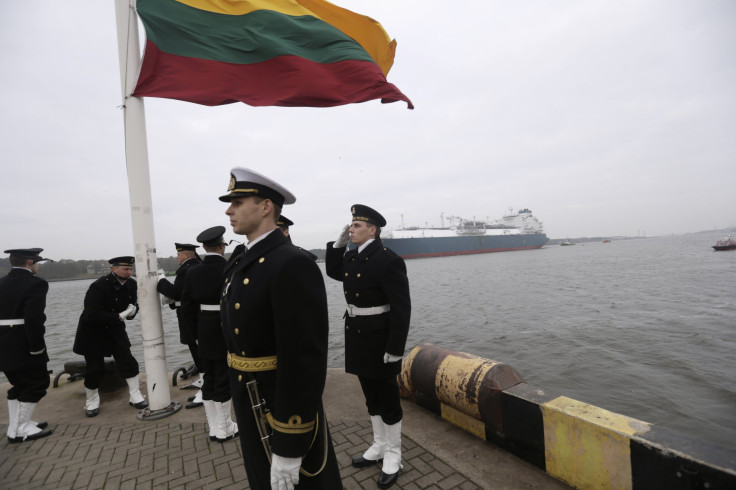Latvia, Lithuania Defense Spending To Increase After Russian Hostility Toward NATO

NATO members Latvia and Lithuania have both committed to increase defense spending during a meeting of defense ministers from the two countries Wednesday evening, reported local Latvian public broadcaster LSM. Under the plan, Lithuania would see its defense spending increase to 1.5 percent of gross domestic product by 2018, while Latvia would reach the NATO-mandated level of 2 percent spending over the same period.
The goal for Latvia is to "be able to take great strides ahead just like our neighbors did," Raimond Bergmanis, the country's defense minister, said after finishing his meeting with Lithuanian counterpart Juozas Olekas in the Lithuanian capital city of Vilnius.
The move came just a day after Russia said it was creating two new armies on the western edge of the country close to the border that meets the Baltic States of Latvia, Lithuania and Estonia. Moscow's hostility toward former Soviet republics during the last 18 months, including the annexation of Crimea and its involvement in the east Ukraine war, has prompted a large increase in military spending across the region.
Latvia needs to get serious about spending more on defense says incoming NATO ambassador:
http://t.co/iO0ZjfKCjx
— Latvian public media (@LSM_eng) July 30, 2015Latvia's increase to two percent represented a 100 percent increase in defense spending and was expected to cost around $309 million, compared to Lithuania’s more modest amount of $229.65 million. Lithuania said it expected to reach the 2 percent minimum military spending by 2020.
Both countries also discussed the possibility of creating a mid-range missile defense system along with Estonia. And Bergmanis spoke about his willingness to send military instructors to Ukraine to support the Kiev government's fight against Russian-backed rebels. Lithuania has already sent instructors to the war-torn country.
Olekas also said that he hoped for greater cooperation between the neighboring countries in "countering hybrid threats and stepping up cooperation with Poland and the Nordic countries," according to a statement released by the Lithuanian defense ministry.
© Copyright IBTimes 2025. All rights reserved.






















